Imagine you are hosting an event and a deaf individual approaches you, inquiring about deaf/ hard of hearing accommodations. This happens every day, in a variety of venues, in both the public and private sector. What do you do? How do you communicate? Had you even considered this situation?
One of the biggest barriers between Deaf and hearing cultures is the simple act of hiring a sign language interpreter. Many hearing individuals, as discussed in my previous post, have very little interaction with deaf/ HoH people in their daily lives. When they do encounter someone who requires accommodation, it can feel like a challenge to locate the proper resources. Even more challenging, but equally important, is ensuring you find a high-caliber ASL interpreter for the event.
 The first step in hiring a sign language interpreter is seeking out a local agency which specializes in ASL. I strongly advise looking for a Deaf-owned, or interpreter-owned provider. Here in NYC, there are some large agencies which hire out interpreters for a variety of languages. Sadly, these businesses often add ASL to their roster to make more money; with little regard for Deaf culture, or the quality of interpreter they provide. A Deaf-owned or interpreter-owned agency will have the best resources to ensure all your deaf/HoH patrons receive the same experience as your hearing patrons. Equality is the ultimate goal!
The first step in hiring a sign language interpreter is seeking out a local agency which specializes in ASL. I strongly advise looking for a Deaf-owned, or interpreter-owned provider. Here in NYC, there are some large agencies which hire out interpreters for a variety of languages. Sadly, these businesses often add ASL to their roster to make more money; with little regard for Deaf culture, or the quality of interpreter they provide. A Deaf-owned or interpreter-owned agency will have the best resources to ensure all your deaf/HoH patrons receive the same experience as your hearing patrons. Equality is the ultimate goal!
When you call the agency, be as specific as possible regarding your interpreting needs. Letting the agency know exactly which type of situation they will be accommodating helps to better match you with a qualified interpreter. For example, in a hospital setting, it would be advantageous to hire an interpreter who could not only communicate with both doctors and patients, but one who is also emotionally and mentally prepared to deliver medical news to a patient’s family. If you are able to provide the agency with as much information as possible prior to your event, they can find an interpreter with some background in the field, and allow them to brush up on relevant terminology. A provider who is knowledgeable requires much less preparation, and is capable of providing a much richer interaction.
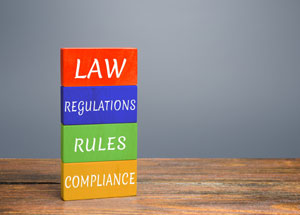 A professional interpreter will know exactly what to do when they arrive on the job. They will ask appropriate questions regarding standing and seating arrangements, and will request any pertinent info prior to the start of your event. It is a great idea to have an outline ready for your ASL interpreter, which would have key topics, any industry-specific jargon, and a list of important names, places, or figures.
A professional interpreter will know exactly what to do when they arrive on the job. They will ask appropriate questions regarding standing and seating arrangements, and will request any pertinent info prior to the start of your event. It is a great idea to have an outline ready for your ASL interpreter, which would have key topics, any industry-specific jargon, and a list of important names, places, or figures.
The Federal Government provides financial assistance for businesses to provide deaf/ hard of hearing accommodation.
The Americans with Disabilities Act (ADA) requires that equal access be provided to persons with disabilities by all public entities (government offices, public schools, etc.) and by all services which are provided to the public at large (doctor’s offices, lawyers, etc.). Generally, this means that such entities are required to pay for sign language interpreting services. To assist businesses with complying with the ADA, Section 44 of the IRS Code allows a tax credit for small businesses and Section 190 of the IRS Code allows a tax deduction for all businesses. This credit can cover 50% of the eligible access expenditures in a year (up to $10,250).
 While provisions may be required by law, it is up to you whether your Deaf/ hard of hearing patron will receive the same quality of service you offer your hearing patrons. It is prudent to find an interpreter with more than just the national certification. Strong background knowledge, diverse field experience, and cultural competence will go a long way in providing equal accommodations, and curbing the oppression of deaf/HoH individuals.
While provisions may be required by law, it is up to you whether your Deaf/ hard of hearing patron will receive the same quality of service you offer your hearing patrons. It is prudent to find an interpreter with more than just the national certification. Strong background knowledge, diverse field experience, and cultural competence will go a long way in providing equal accommodations, and curbing the oppression of deaf/HoH individuals.
Currently, in the greater New York City area, there is one Deaf-owned and four interpreter-owned providers, including myself. For more information about my interpreting services, please contact me.
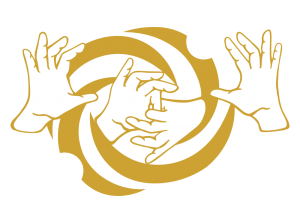



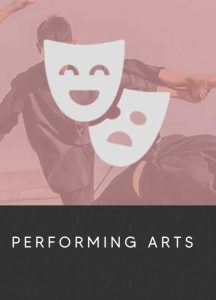
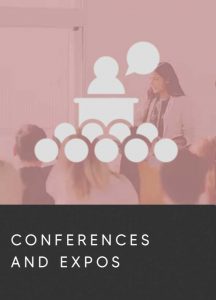
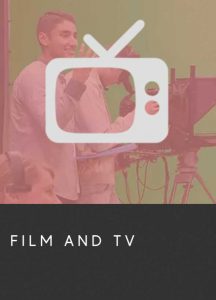
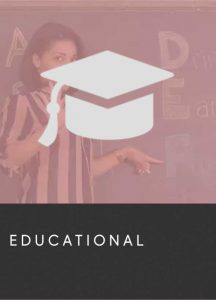
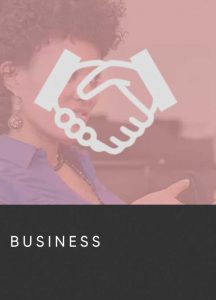



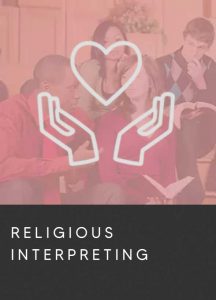
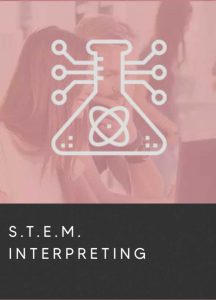
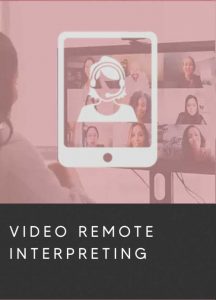
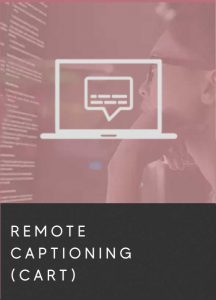

 One day, an interpreter might be asked to interpret divorce proceedings in a courtroom setting; the next, they might be asked to interpret an executive’s corporate presentation. This unique career choice requires a dynamic individual with a love for customer satisfaction. In my last
One day, an interpreter might be asked to interpret divorce proceedings in a courtroom setting; the next, they might be asked to interpret an executive’s corporate presentation. This unique career choice requires a dynamic individual with a love for customer satisfaction. In my last  A high-quality interpreter will have real world experience, a flexible attitude, and a willingness to keep up to date on relevant industry news. These individuals will be confident in their knowledge, will never accept a job they do not feel prepared for, and are not afraid to ask questions. Quality interpreters also maintain an established network of others in the field. Interacting with other interpreters allows us to bounce ideas back and forth, work through problems that arise, and better understand our own limitations.
A high-quality interpreter will have real world experience, a flexible attitude, and a willingness to keep up to date on relevant industry news. These individuals will be confident in their knowledge, will never accept a job they do not feel prepared for, and are not afraid to ask questions. Quality interpreters also maintain an established network of others in the field. Interacting with other interpreters allows us to bounce ideas back and forth, work through problems that arise, and better understand our own limitations. I cannot emphasize the value of mentoring enough. Having a mentor is an invaluable way to learn the ins and outs of Sign Language interpreting; the kind of things they don’t teach in school. An experienced mentor will help identify strengths and weaknesses; understand the more emotionally challenging aspects of the job; and prepare for the pressures of being on-the-spot. In this field, there is always room for growth. Without someone providing guidance, it is easy to take a job beyond our scope, become discouraged, or fall into bad or stale habits.
I cannot emphasize the value of mentoring enough. Having a mentor is an invaluable way to learn the ins and outs of Sign Language interpreting; the kind of things they don’t teach in school. An experienced mentor will help identify strengths and weaknesses; understand the more emotionally challenging aspects of the job; and prepare for the pressures of being on-the-spot. In this field, there is always room for growth. Without someone providing guidance, it is easy to take a job beyond our scope, become discouraged, or fall into bad or stale habits. The first step in hiring a sign language interpreter is seeking out a local agency which specializes in ASL. I strongly advise looking for a Deaf-owned, or interpreter-owned provider. Here in NYC, there are some large agencies which hire out interpreters for a variety of languages. Sadly, these businesses often add ASL to their roster to make more money; with little regard for Deaf culture, or the quality of interpreter they provide. A Deaf-owned or interpreter-owned agency will have the best resources to ensure all your deaf/HoH patrons receive the same experience as your hearing patrons. Equality is the ultimate goal!
The first step in hiring a sign language interpreter is seeking out a local agency which specializes in ASL. I strongly advise looking for a Deaf-owned, or interpreter-owned provider. Here in NYC, there are some large agencies which hire out interpreters for a variety of languages. Sadly, these businesses often add ASL to their roster to make more money; with little regard for Deaf culture, or the quality of interpreter they provide. A Deaf-owned or interpreter-owned agency will have the best resources to ensure all your deaf/HoH patrons receive the same experience as your hearing patrons. Equality is the ultimate goal! A professional interpreter will know exactly what to do when they arrive on the job. They will ask appropriate questions regarding standing and seating arrangements, and will request any pertinent info prior to the start of your event. It is a great idea to have an outline ready for your ASL interpreter, which would have key topics, any industry-specific jargon, and a list of important names, places, or figures.
A professional interpreter will know exactly what to do when they arrive on the job. They will ask appropriate questions regarding standing and seating arrangements, and will request any pertinent info prior to the start of your event. It is a great idea to have an outline ready for your ASL interpreter, which would have key topics, any industry-specific jargon, and a list of important names, places, or figures. While provisions may be required by law, it is up to you whether your Deaf/ hard of hearing patron will receive the same quality of service you offer your hearing patrons. It is prudent to find an interpreter with more than just the national certification. Strong background knowledge, diverse field experience, and cultural competence will go a long way in providing equal accommodations, and curbing the oppression of deaf/HoH individuals.
While provisions may be required by law, it is up to you whether your Deaf/ hard of hearing patron will receive the same quality of service you offer your hearing patrons. It is prudent to find an interpreter with more than just the national certification. Strong background knowledge, diverse field experience, and cultural competence will go a long way in providing equal accommodations, and curbing the oppression of deaf/HoH individuals.





